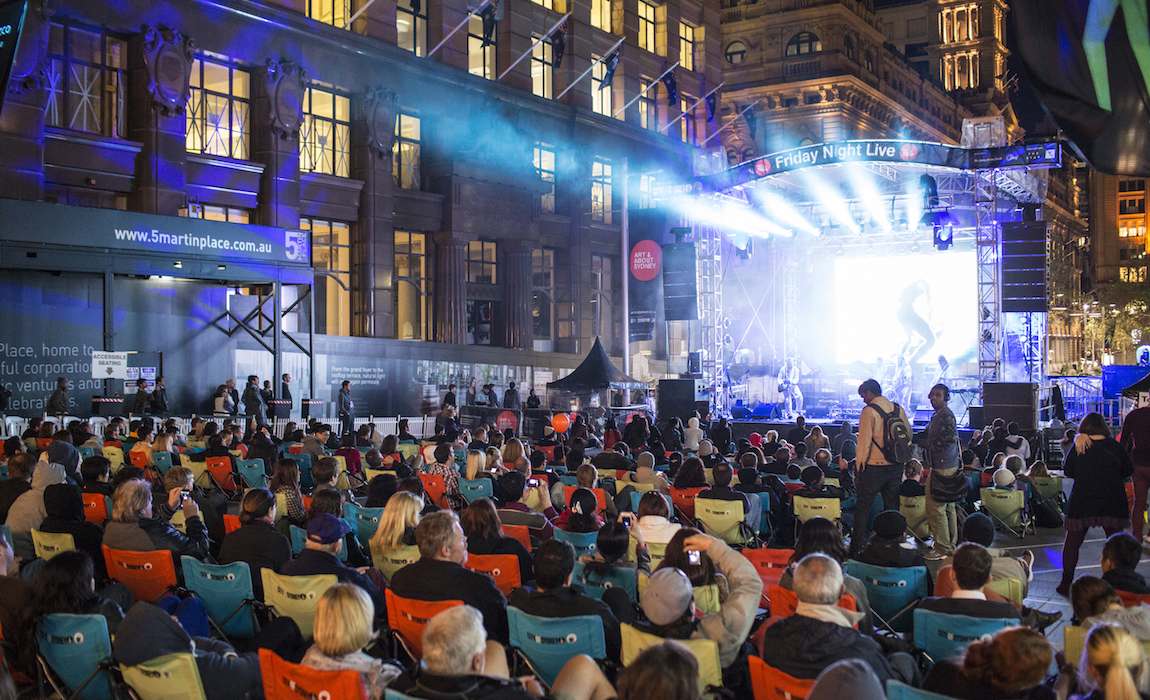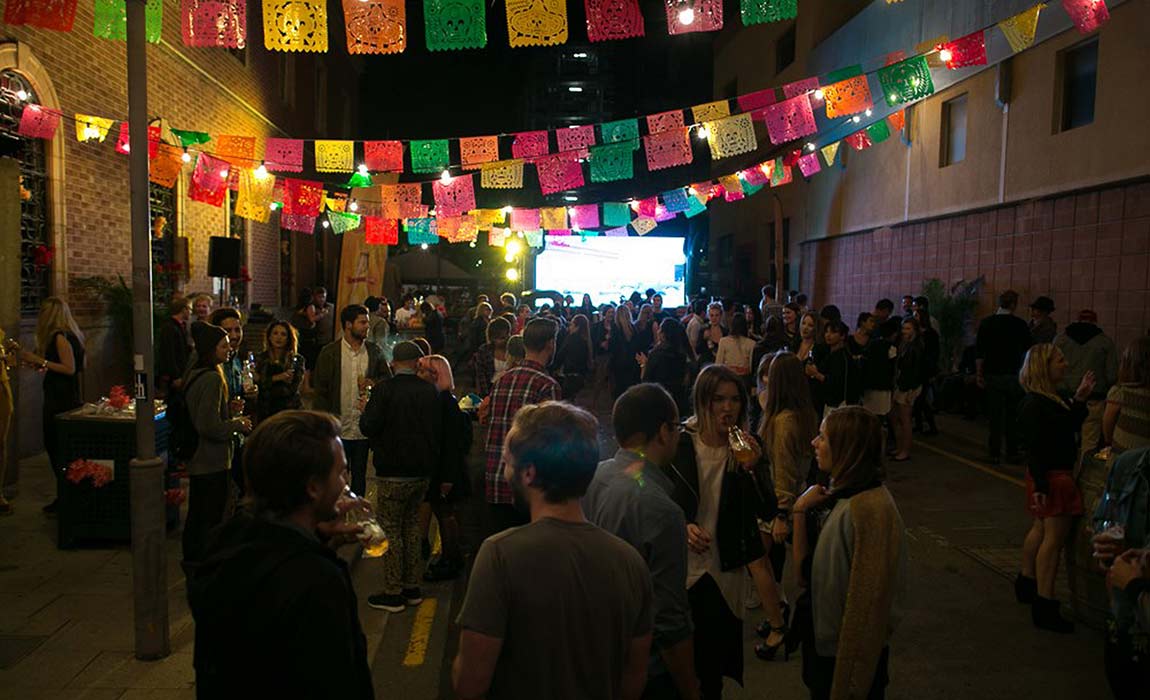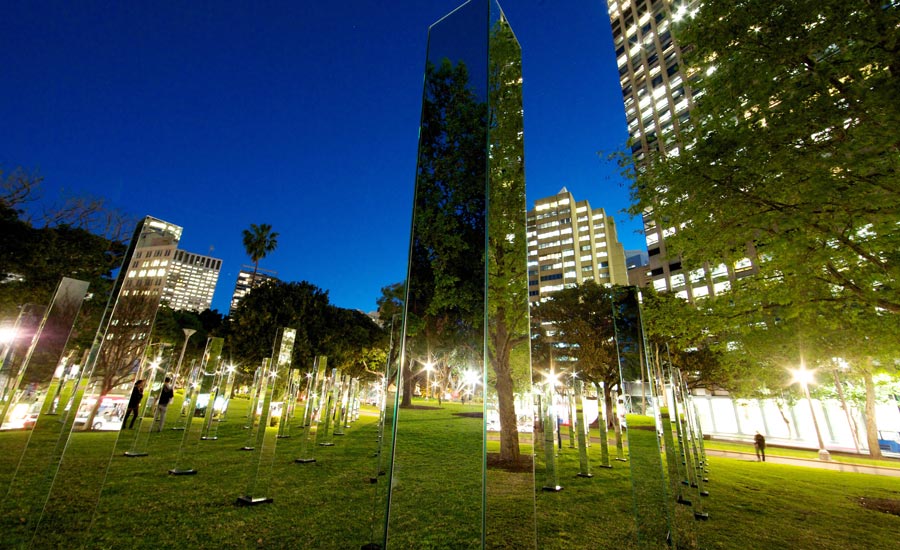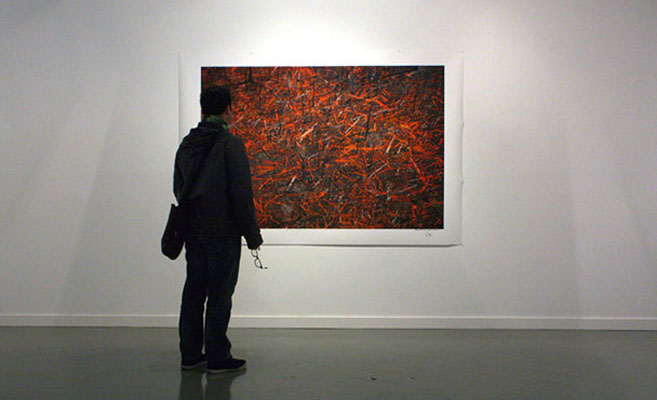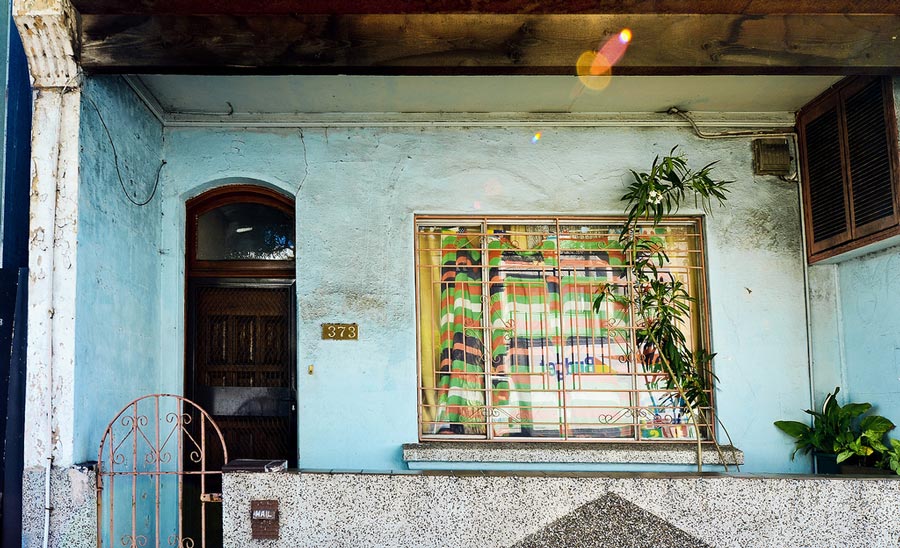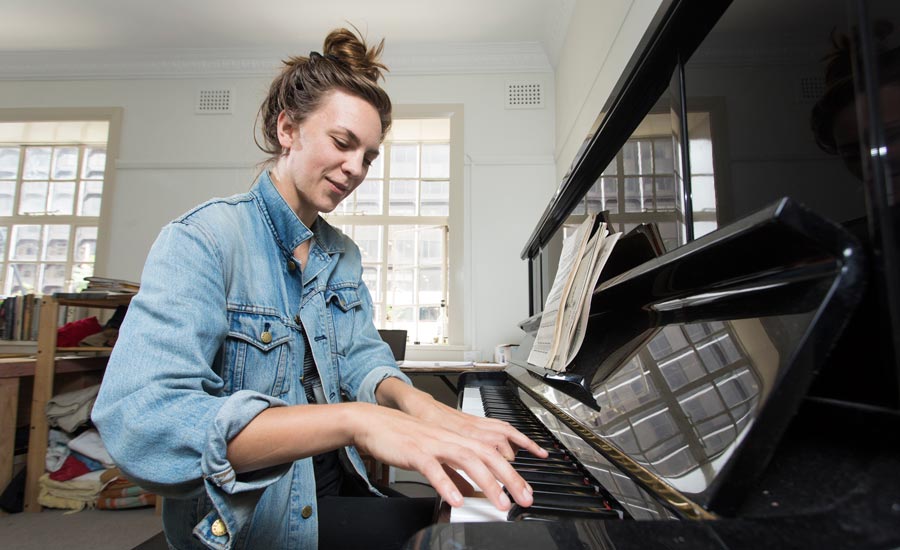Six Ways the New Cultural Policy Will Make Sydney Better
One document is ushering in more legal pop-ups, interest-free loans for buying art and year-round Art and About.
The arrival of the Federal Budget this week, for most, was like looking into Mordor. But also released this week is a local government plan that's a source of light: The City of Sydney's first cultural policy, describing all we want our city to be and prescribing the immediate actions that will make it happen. It's been developed following a year of active consultation that included more than 2000 written submissions, plus all the chatter generated at forums and on Twitter.
Why have a cultural policy? It's a way of formalising all the things that creative people love in Sydney and amplifying them. It's a way of making creative industries grow and our everyday lives be a little out of the ordinary. And it's a way of ensuring that new laws and regulations — as well as existing ones — work with those creative aspirations, not against them.
The draft action plan pulls together ideas from New York, San Fran, Helsinki, Hobart (yes, Hobart) and Sydneysiders' own invention. After a month on exhibition, where you can still give feedback, it's set to go before City of Sydney Council on June 9. Here are six of its inspiring proposals that will soon become reality.

Pop-ups will be (more) legal
It's tough for a temporary venture to set up legal shop — so some choose not to, operating a la speakeasy. "[Chippendale pop-up The Eat-In] was this fantastic experience, but it was completely illegal because it didn't have the $25,000 grease trap, or all of the things that the health and building legislation and codes require anyone to have if they're setting up a permanent restaurant," says Rachel Healy, executive manager of culture at the City of Sydney. "And I guess the point is that it wasn't a permanent restaurant; it was creative experimentation around a new idea, which artists and creative workers do all the time."
Pop-ups are a perfect example of what the cultural policy is about, really. The law is there to protect us from improvised, dubiously fitted out restaurants and bars — but we the public love them. Once the cultural policy passes, those laws that conflict with the broader vision are liable to change. The City of Sydney have committed to researching and reviewing regulatory impediments to pop-ups, both of the hospitality and creative varieties, so that there's less red tape and more jovial partaking in pigs on spits.
In fact, cutting out red tape is a big theme throughout the cultural policy. Their whole attitude is that the creative people of Sydney are sitting on millions of brilliant ideas for their community; all the council has to do is facilitate them. Any single person who wants to put a public space to an unexpected creative use should be able to, they realise — even without the expertise of a big organisation behind them. This could be done in many ways, but we particularly like the submission that suggested an 'independent producer passport', including a simplified DA application, bar licence and zoning exemptions, information about insurance options and a point of contact within the police.

Art & About Will Go All Year
"What was really clear from the feedback that we got was that while the community and the sector love our festivals, and Sydney's really good at them … we do need to spend more time focusing on year-round activity," says Healy. So even though the outdoor public art smorgasbord of August/September's Art & About will continue, the festival will expand to include programming throughout the year. This won't be limited to the CBD — one of the big demands the City is more than happy to answer is to inject colour, art and interaction into public spaces throughout Sydney's 'villages'. There'll be heaps of art that's site-specific and brings out the history and culture of each area.
What will that look like? Healy elaborates. "Those interesting experiences — the raining house near Hyde Park or the fantastic Craig Walsh work of the faces of protesters on the trees in Hyde Park — all of those interesting things won't only happen in a festival context but will happen throughout the year, so Sydney does become a city where those unexpected little moments become part of your everyday experience."

Interest-Free Loans Will Help You Buy Art
Home loans may be out of reach of most Sydneysiders, but soon we'll be able to go cry into the one appreciable asset we do own — art. A new scheme will give interest-free loans of up to $10,000 to buyers purchasing works from City of Sydney galleries and studios by living artists. "One of the policy directions is about removing barriers for greater engagement with the city's existing cultural life, and this is the most fantastic idea, that we've shamefully stolen from Arts Tasmania," says Healy.
It's all in the name of improving access to culture, but the loan also benefits the artist, who might otherwise have not sold that work that so enamoured you. "More than five million dollars has gone through the scheme [in Tasmania]," says Healy. "Arts Tasmania would never have been in a position to give out five million dollars in grants to Tasmanian artists. What they did do, though, was develop a scheme where they enabled five million dollars to go into the wallets of Tasmanian artists, who are otherwise doing it pretty hard."
The scheme is so perfect, in fact, that Tasmania's experienced zero defaults. Art lovers don't renege — fact.

You'll be able to tell the difference between Surry Hills and Redfern
There's no easy fix to the sameyness that seems to go hand in hand with gentrification, but the City of Sydney has a few ideas to preserve and develop what they call 'precinct distinctiveness'. They'll basically be trying extra hard to make sure King Street looks different to Crown Street, and neighbourhood festivals embody all that is special about your neck of the woods. The touchstone here is New York, the ultimate city of villages.
To complete this nebulous task, they'll be encouraging projects that amplify each precinct's distinctive histories, stories and contemporary character through grants. You should also look out for cute maps and variations on those stripey deck chairs.

Soundproofed rehearsal rooms in high-density housing
Artist live-work spaces are something the council has been talking about for some time, and that commitment continues with the Cultural Policy. A cool addition, however, is in the smaller units of artistic infrastructure that mean anyone who has a shred of artsiness they want to nurture can have a space to do so. One of the City of Sydney's jobs is signing off on residential high-rise developments, so they're determined to push for creative spaces like soundproofed rehearsal rooms before they do so.
"When Scandinavia turned over a whole lot of its community centres to kids who were engaged with metal music, they collectively had the most incredible impact on the metal scene worldwide," says Healy. "Making soundproof space available, particularly for young people, who've got a lot of time often but not much money, can have an incredible impact on what that city produces long-term. So long-term infrastructure is a really big part of what we're doing with this policy."

Free public wi-fi (maybe, sometimes)
Free omnipresent wi-fi is the dream, is it not? Working in the park without tethering to your temperamental phone, accessing maps as a tourist, torrenting all of Game of Thrones (jk! Would not do that to the nice councilpeople). Well, it's still a dream, for now. In the medium-term, though, the City of Sydney will investigate the introduction of wi-fi into major parks and squares, whether by partnering with business or some other means. Fingers crossed here.

Surry Hills house image by rabbithoang via photopin cc.
